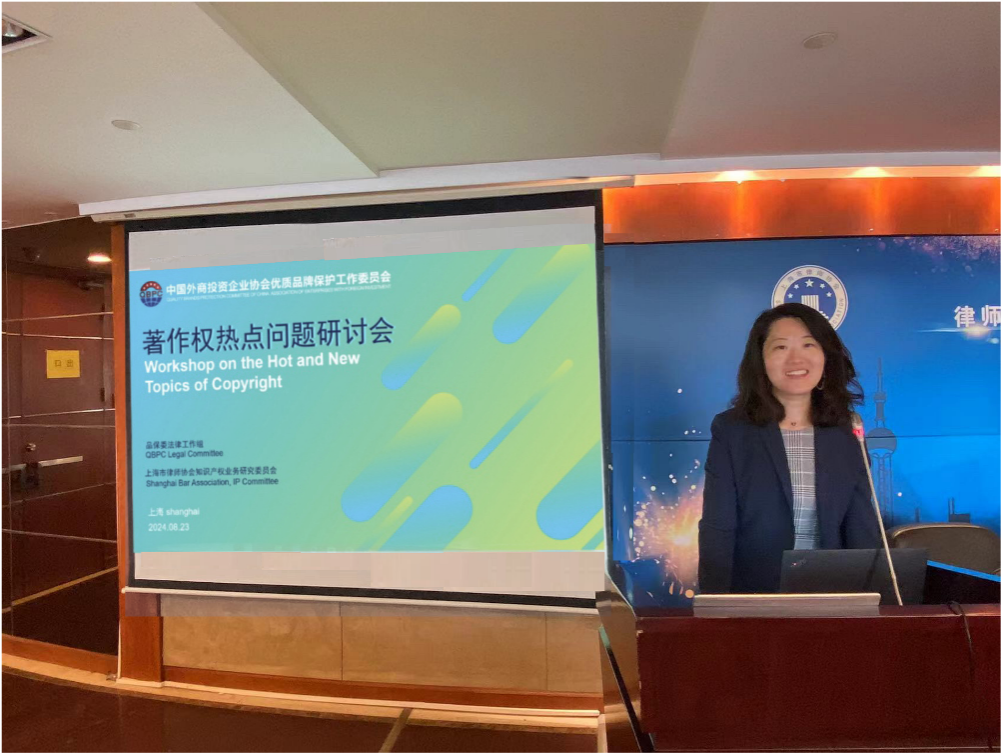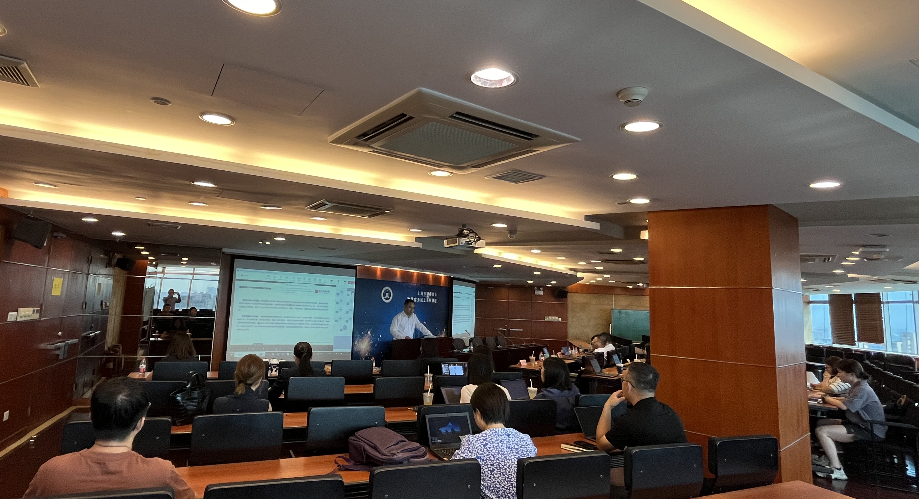On August 23, the QBPC Legal Committee and the Intellectual Property Practice Research Committee of the Shanghai Bar Association (SHBA) co-organized a workshop on hot topics of copyright. Mengmeng MA, Legal Committee Vice Chair, presided over the workshop, which drew over 40 QBPC representatives attending both onsite and online.

Mengmeng Ma
First, Xiaobing WANG made an in-depth analysis on the protection practice of works of applied art and its inspiration. By outlining domestic and overseas legal bases, he clarified the definition and protection conditions of works of applied art. Through case study, he analyzed the specific application of the protection of works of applied art in judicial practice while demonstrating the judgment standards of originality, aesthetic significance, and separation of artistry and utility. After elaborating on the synergistic protection for works of applied art and other IPs such as design patents, three-dimensional trademarks, and packaging and decorations of goods with certain influence, he emphasized that the simultaneous protection of a variety of rights could fully safeguard the innovation.
Second, Gang FU explained the application of the legal source defense rule in copyright infringement cases. He stressed the legal source defense’s specificity in the Copyright Law and its difference with the Patent Law and the Trademark Law in terms of the applicable subject, subjective elements, and legal consequences. Through specific cases, FU demonstrated the different viewpoints in judicial practice, explored whether the legal source defense could be applied to the right of communication on internet, and summarized the focuses of the legal source defense in practice, including the applicable subject, successful elements, and the responsibilities after a successful defense, in order to provide enterprises with guidance for the application.
Next, Professor Mianqing WANG illustrated the duty of care of Internet Service Providers (ISPs) in case of copyright infringement. By analyzing the cases in judicial practice, WANG indicated that ISPs had to consciously undertake the matching duty of care due to direct economic gain or specific service mode. She also sorted out the relevant Chinese laws and regulations clarifying the “Notice-Delete” rule and the ISPs’ exemption conditions. After discussing the practical need for ISPs to take responsibility and the development of the attribution principle, she proposed the classification of the duty of care and the applicable standards as well as emphasizing the principles of balance of interests and economic benefits.
Finally, Feng LIU discussed the collision and existing conflicts between AIGC and copyright law as well as response strategies. Citing the first case of AI generated images as an example, LIU analyzed how the court determined that AI generated images were protected by copyright law while pointing out that the verdict conflicted with the existing copyright law. On this basis, LIU further presented the new thinking inspired by AI development, including judicial practice and legal exploration around the world, and proposed other approaches to protect AIGC beyond the perspective of copyright law and potential solutions in the future.
In the Q&A session, guest speakers answered the questions raised by the participants, such as the changes of the issue of batch rights protection and coping strategy, the court's disagreement with the defendant to add co-defendants, and so on.

